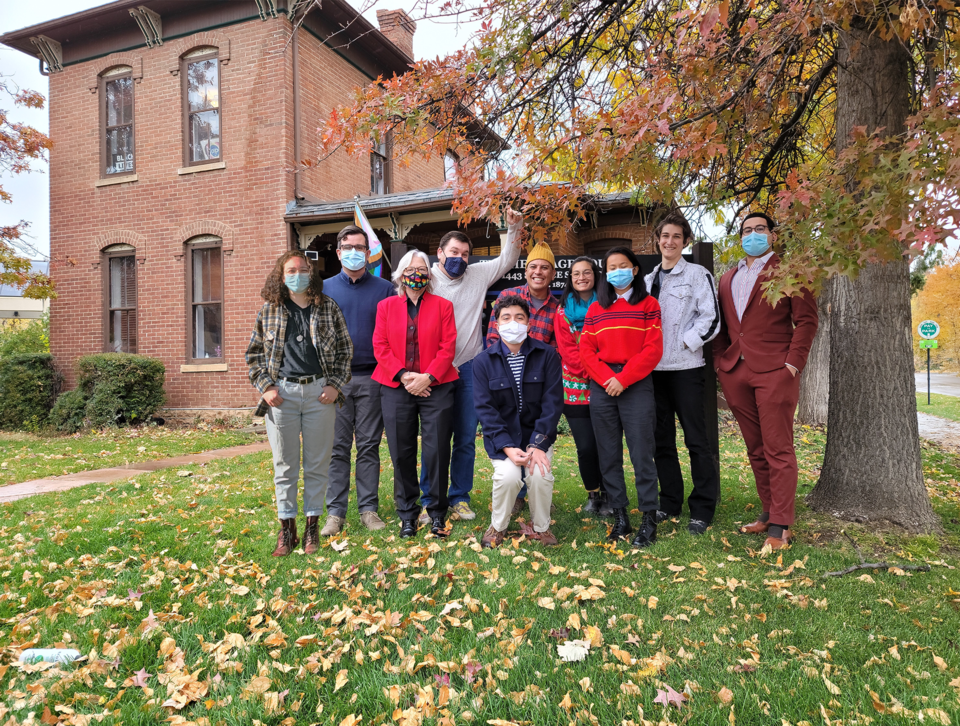During the pandemic, marginalized communities’ lack of access to resources came to the forefront nationwide. Many nonprofit organizations stepped up to make lasting changes.
A Colorado coalition of small nonprofits — dedicated to serving marginalized communities — came together to ensure that organizations and the communities were not left behind when it comes to an equitable recovery from the COVID-19 pandemic, stated the Communities Lead, Communities Thrive Coalition, or CLCT, on its website.
When the Colorado Department of Public Health and Environment, or CDPHE, declared “racism as a public health crisis” during the pandemic in a press release on April 21, 2021, the department stated that the disproportionately high impact of COVID-19 on Colorado’s Black, Indigenous and People of Color communities was the result of systemic inequities rooted in disproportionate exposure through workplaces and a lack of minority groups’ access to healthcare.
Moreover, the CDPHE said an individual’s long term health can be negatively impacted by experiencing racism, which was a reason why minority groups were disproportionately affected by the pandemic.
OUT Boulder County is among the groups set up to help these groups receive the support they need.
OBC was part of the “Steering Committee” behind CLCT’s efforts to create Senate Bill 22-1356, according to OUT Boulder County’s Executive Director Mardi Moore. SB 22-1356, still waiting for Gov. Jared Polis’ signature, will provide monetary grants to small community-based nonprofits across Colorado. From these funds, these organizations will be able to build their organization to better support the communities they serve.
The bipartisan bill will appropriate $35 million from the American Rescue Plan Act, allocating the money to the nonprofits “for infrastructure and capacity building purposes,” the Colorado General Assembly website states, which includes organizations’ data technology needs, professional development for staff and board members, strategic planning, organizational development for capacity building and more.
“Investing resources in nonprofits that uniquely understand how to effectively meet the needs of their communities will have the greatest direct impact so that vulnerable Coloradans don’t slip through the cracks as the rest of the state recovers from the pandemic,” President and CEO of the Latino Community Foundation of Colorado and Steering Committee Member of CLCT Carlos Martinez stated in a CLCT press release.
This year’s legislative session further supported marginalized community members with the passing of Senate Bill 22-1157.
SB 22-1157 amended the Colorado Option — which established the requirement for healthcare provider networks to be culturally responsive to the unique needs of its diverse patient population — to collect additional data.
According to Moore, a shortcoming of the Colorado Option was that it didn’t enforce a statutory obligation to collect data related to the race, ethnicity, sexual orientation, gender identity or disabilities of patients receiving medical treatment in facilities across Colorado. It also did not obligate the CDPHE to collect data about how these identities factored into the quality of healthcare services patients are provided with, she said.
“Without this data, the state is lacking in the information needed to respond to the public health needs of its residents, is left with critical gaps during public health emergencies and when trying to strategize around health inequities,“ Senate Bill 22-1157’s sponsors Colorado Representative Karen McCormick, Representative Brianna Titone and Senator Sonya Jaquez Lewis said in a collective statement.
“We cannot go through another pandemic without having this data because Colorado’s underserved communities are at risk, and that is the thinking that went into the bill,” Moore said.
Following the Senate Bill 22-1157’s approval, its sponsors hope the CDPHE’s consistent collection and reporting of this data “will improve care, facilitate information sharing for better clinical care, research, public health interventions and reduce health disparities in these underserved populations (across Colorado),” McCormick, Titone and Lewis said.



